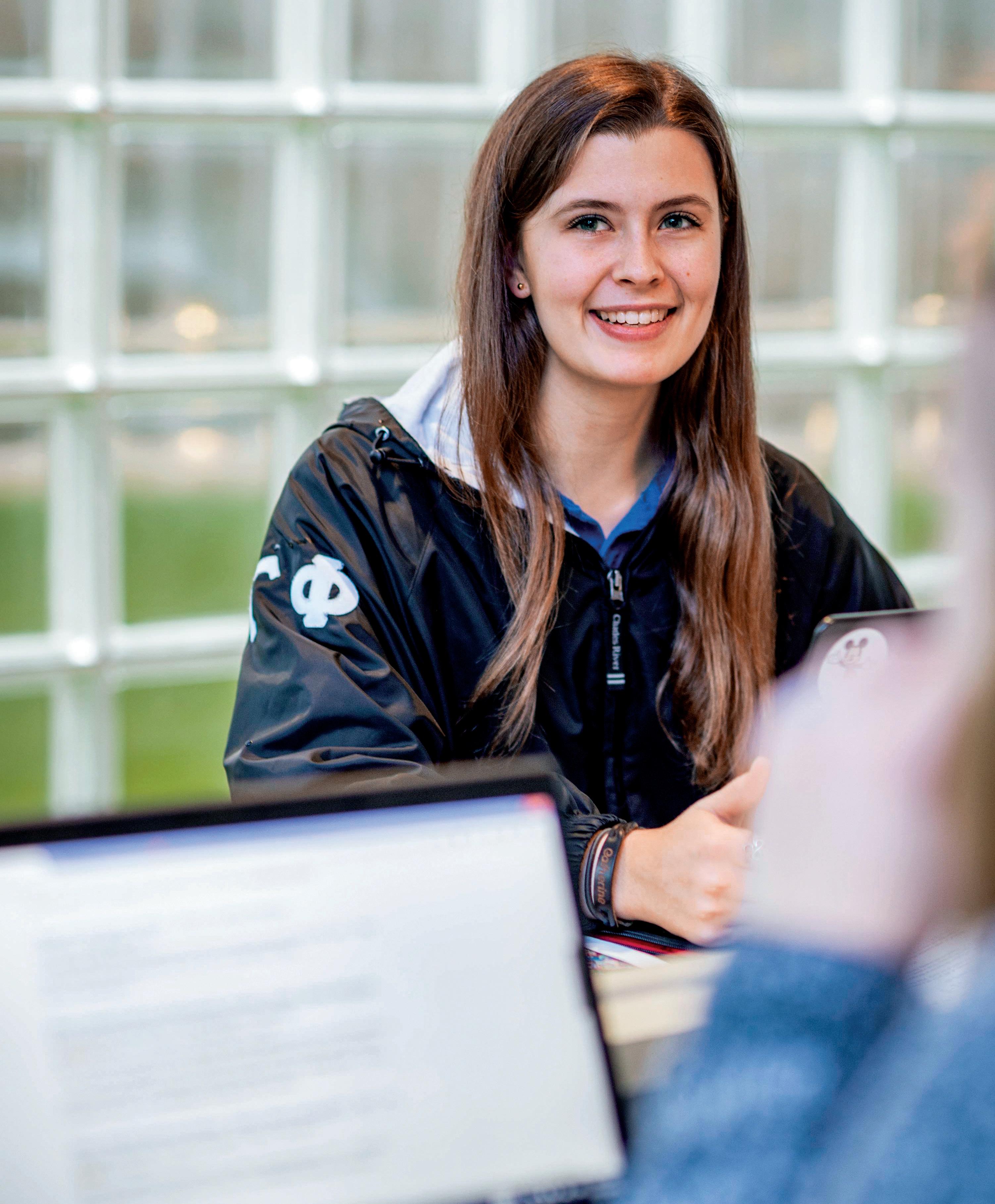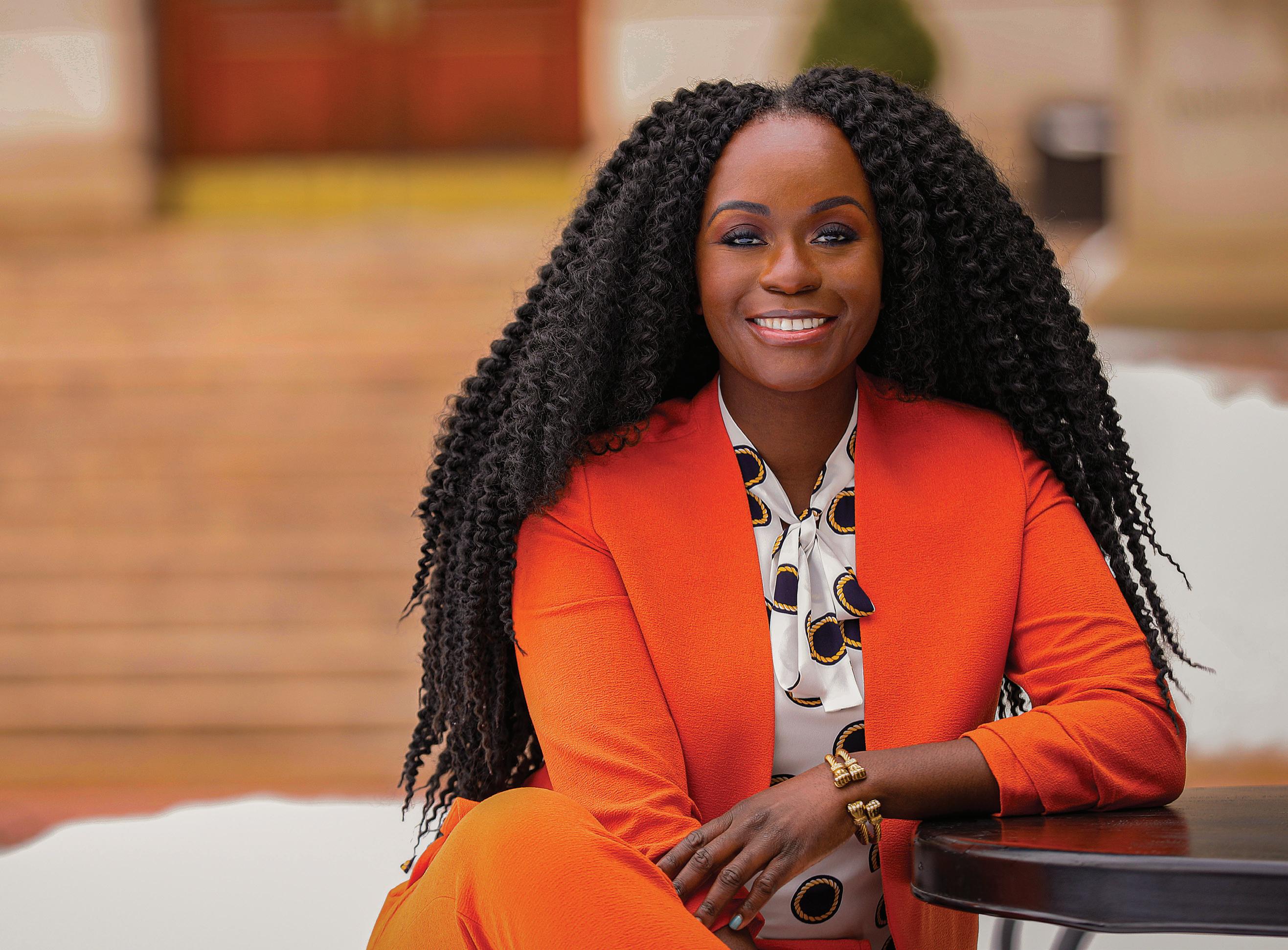
4 minute read
Last Word
A Lasting Tradition
Seton Hall’s Petersheim Academic Exposition — where the University honors the best in academic achievement — got its start 25 years ago. The annual week-long celebration draws from undergraduate and graduate work at all three University campuses and includes research symposiums, poster sessions, presentations, panel discussions, theatrical performances, art exhibits, debates and concerts.
Named after an innovative associate professor of biochemistry who passed away soon after launching the event, the expo provides students with a taste of scholastic rigor and presentation. Seton Hall magazine editor Pegeen Hopkins talked to Sulie L. Chang, a biology professor and co-chair of the expo’s steering committee, to learn more.
How did the expo get started?
In 1996, Matthew Petersheim saw that our campus had many nonacademic celebratory events for students — gatherings for sports or theater. But it didn’t have any such events for academics or research. So, he reached out to student affairs to get financial sponsorship for an exposition.
Not long after, he was diagnosed with a brain tumor. He was so integral to the event’s development, I wondered if the initiative would continue if he got very sick. He told me: “Don’t worry. I will continue doing the expo.” He did, for as long as he could. After he passed away, we lobbied faculty senate to have the event named after him.
What was Professor Petersheim like?
This story gives a good idea of the kind of person he was: I was new to Seton Hall. We had never been introduced, but his laboratory was near mine. I had young children then, and I always had my two daughters come and sit outside my lab. Because of their age, they were not allowed inside for safety reasons. So, they would wait for me in the hallway, sitting on the floor. One day, he carried a big, long wooden bench over and told them, “Now you can sit here, on this bench.” What concrete benefits do students get from participating in the expo?
The process of preparation and getting ready to present is a big benefit. I call it “the transformation.” In the first couple of weeks, you can see students’ resistance to the idea. But as time goes on, they get more invested, making sure they get everything right. Most importantly, they come away from the process with tangible work — a research abstract, poster and publishable manuscript. Many of them never thought that as undergraduates they would have a publishable manuscript prepared. But they do.
What was one of the most memorable of the student presentations over the years?
One thing that’s important are the topics, which can deal with subjects such as alcoholism, drug addiction, cancer. But a couple of students come to mind. One was Xin Yu, a graduate student from China — he was so determined. When anyone would pass by him, he would ask, “Can I present this to you?” to practice. Now, he’s a top scientist in functional MRI at Massachusetts General Hospital. There was also Rachel Montel, a Ph.D. student in molecular bioscience. She presented her own idea at the expo, rather than a professor’s suggestion, and won two awards. She’s now at Weill Cornell medical school as a postdoctoral associate.
How has the expo been evolving?
We recently introduced a travel award so that the students who give the top presentations at our expo can travel to academic conferences — locally, nationally or internationally — to present their work. There’s an award for each program. This allows students to share their research and network with scholars and researchers in their fields.
Also, many groups have brought in top-level speakers to present to students. In 2017, Dr. Kamel Khalili, who some say will eventually cure HIV, came to speak about using the CRISPR-technique to remove the HIV gene from the genome of the patients. The following year, Dr. David Goldman, the clinical director of NIAAA came to talk about how genetics explains our behavior. The expo continues to grow and transform.
Visit www.shu.edu/petersheim for more information. n
There is no limit to what young Pirates can achieve with a Seton Hall education.
Those endless possibilities begin with you.
The Seton Hall Fund provides opportunities for students that give them the resources they need to accomplish their greatest dreams. Your support helps make the Seton Hall experience possible and accessible for even more students.
To support our students, please visit www.shu.edu/giving
Department of Public Relations and Marketing 519 South Orange Avenue, South Orange, NJ 07079
Ensure the future for your loved ones and support a cause you care about.
With estate planning, you can: n Save on taxes by giving appreciated stocks, bonds or mutual fund shares. n Make a gift through your IRA. n Use a gift to reduce your estate tax exposure and eliminate capital gains. n Receive payments for life.
Contact Joseph Guasconi 973-378-9850 joseph.guasconi@shu.edu or Nora Nasif Rahaim 973-378-9878 nora.rahaim@shu.edu
www.shu.edu/plannedgiving

PRESORTED STD NONPROFIT US POSTAGE PAID STRASBURG, VA PERMIT #201








